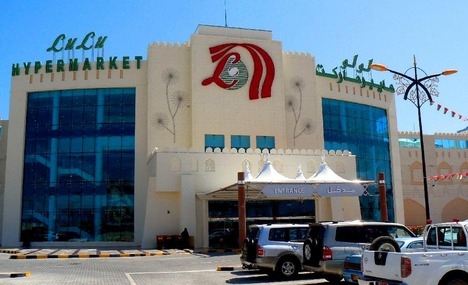Retail sales in Qatar are expected to grow at 6.7% until 2016, making it the third fastest growing market in the entire Gulf region, according to Alpen Capital.
Qatar is expected to maintain a steady more than 11% share in the GCC retail market during 2011-16, with Saudi Arabia and the UAE tipped to be the largest contributors, it said.
In the supermarket/hypermarket format, Qatar’s retail sales are expected to grow 9.4% during 2011-16. The supermarket and hypermarket segment in Qatar is relatively under-developed compared to most of the other countries in the GCC (Gulf Co-operation Council) despite having the largest proportion of expatriate population, Alpen Capital said.
However, perceptions are now changing and the country has become more accommodating with several retailers having entered the market, it said. The recent proliferation of hypermarkets could be attributed to the country’s maturing retail industry and demands from large western communities who prefer organized retail formats, common in their respective home countries, the report said.
Observing that most of the hypermarkets act as anchor stores in large shopping malls, it said, generally, non-food items contribute a majority of the sales by value in hypermarkets.
Prominent local modern grocery retailer in Qatar is Al Meera Consumer Goods Company. However, having taken note of the market potential, regional players like LuLu and global retailers like Carrefour are also expanding their presence in the country.
Qatar’s retail industry is primarily reliant on imports of consumer products from the Middle East and North Africa and other regions due to undeveloped indigenous manufacturing capabilities, the report said, adding a large proportion of expatriates and affluent local population make Qatar a very attractive market, especially for fashion retailers.
Most of the Qatar’s retail activities are concentrated in Doha, which has around eight modern shopping malls and has about 0.8mn sq m of gross leasable area in 2011, it said.
“However, the state of the industry in Qatar may change over the next few years with the government’s impetus on infrastructure and tourism development as the country plays host to the FIFA World Cup in 2022 and has bid to hold the Olympic Games in 2020,” the report said.
The size of trade, restaurants, and hotels sector at current prices expanded 10.4% year-on-year to $9.8bn in 2011, Alpen Capital said, adding after witnessing fairly “volatile but positive” growth for a few years, the industry has settled to a growth of around 8%-10% in the last two years.
High personal income, low unemployment, large public spending, sustained demand for energy resources and sound fundamentals have largely “insulated” the Qatari economy from external shocks, enabling it to maintain a positive growth momentum, it said.
Apart from consumer spending and leisure tourism, business tourism has also benefited the trade, restaurants, and hotels sector, it added.
Gulf Times
10 December
























































